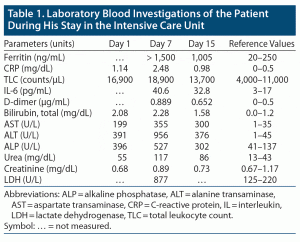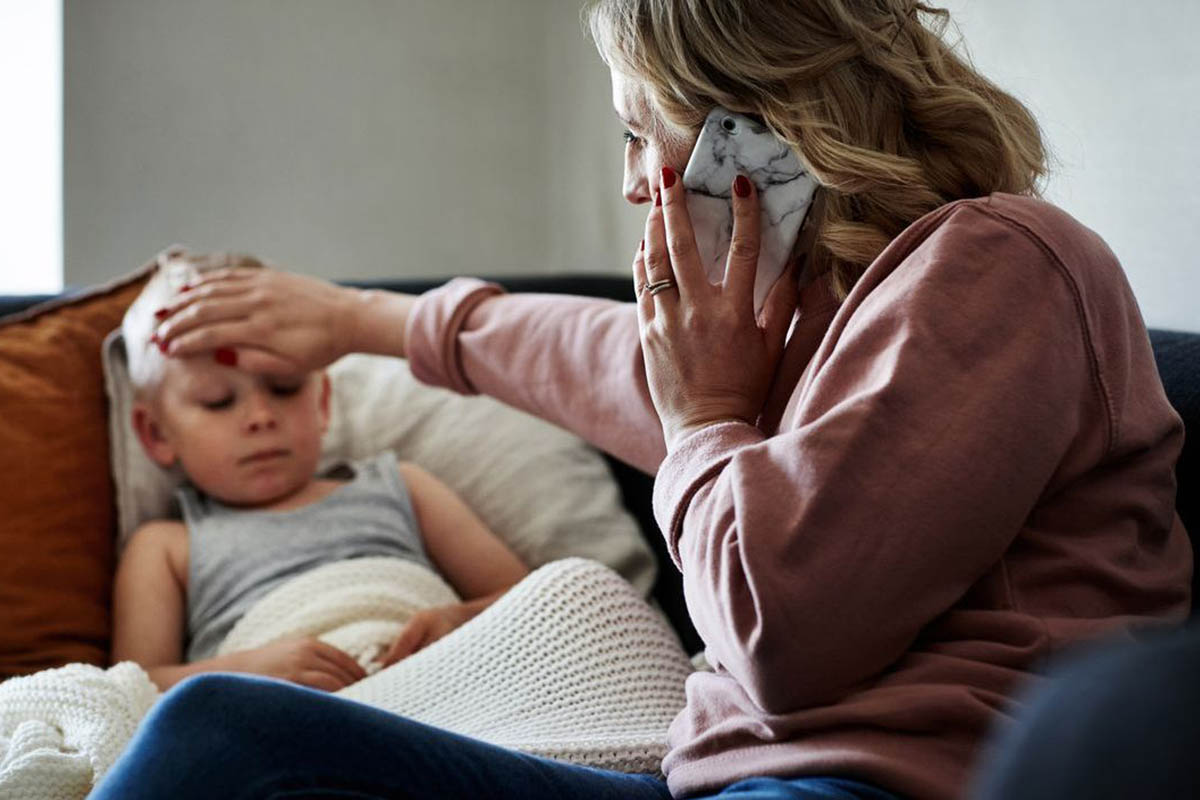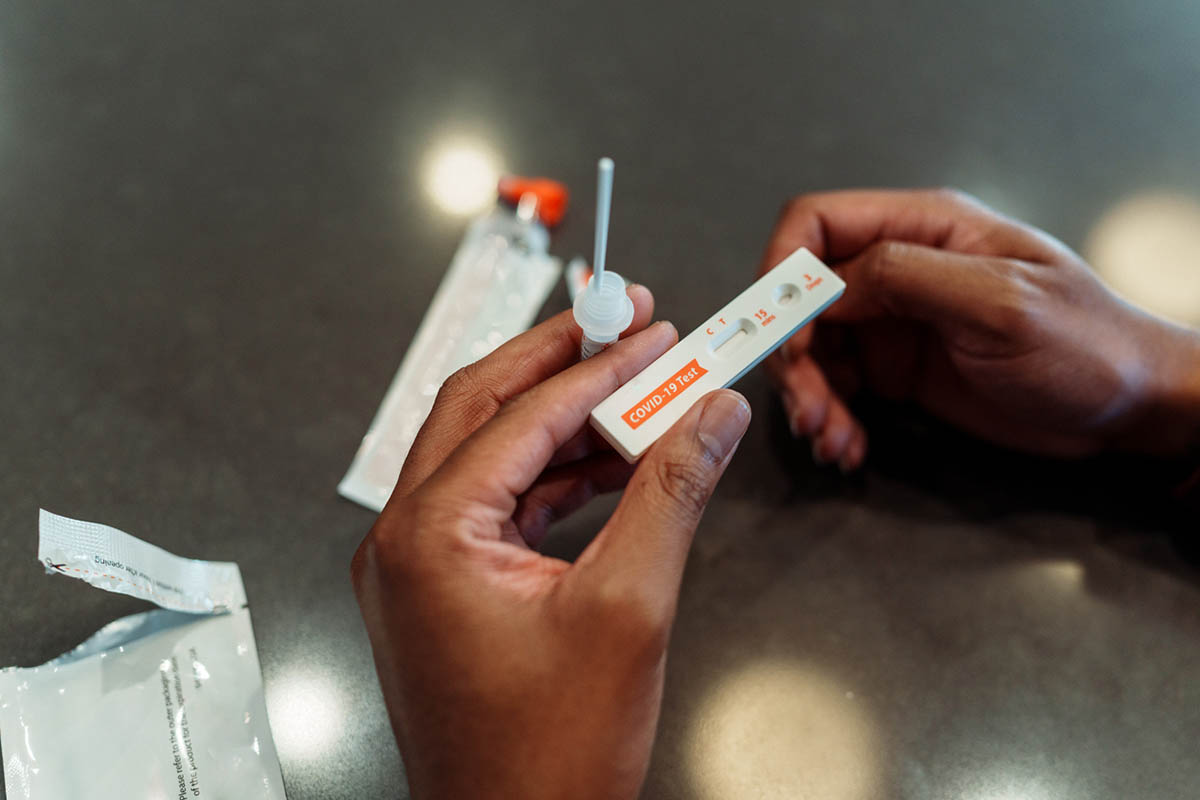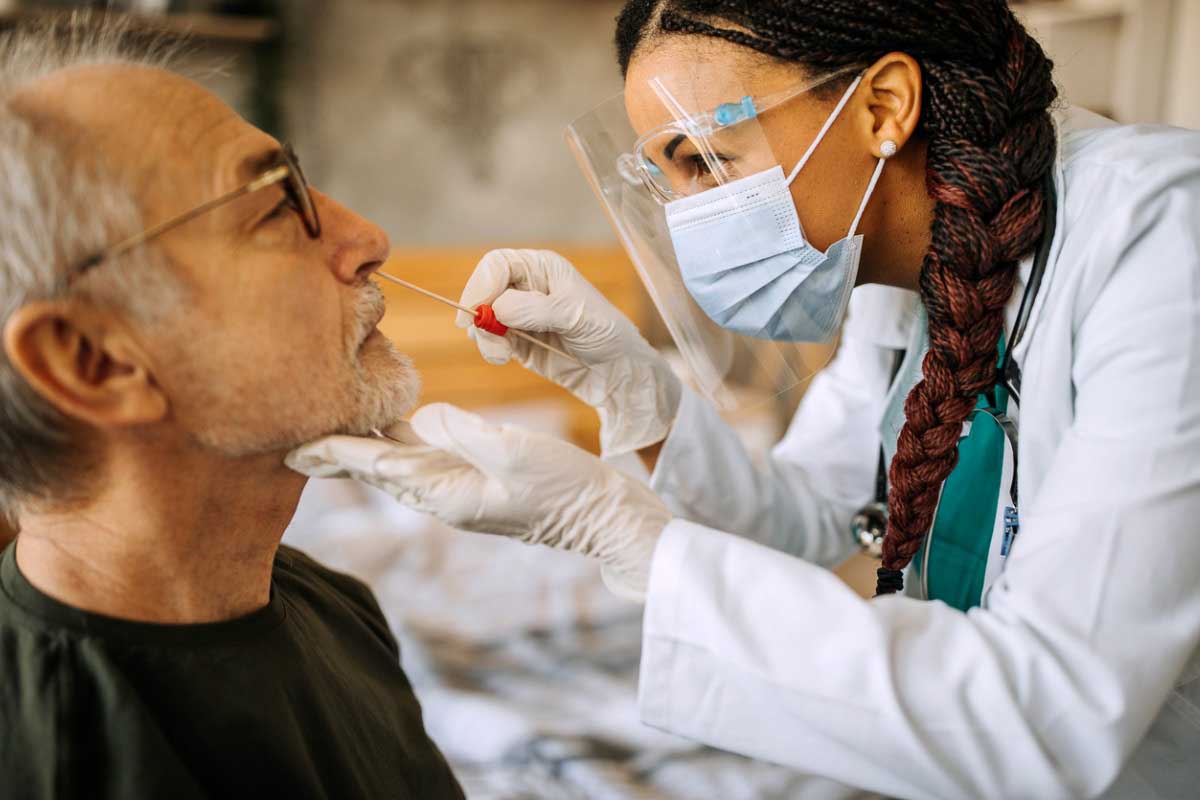
Prim Care Companion CNS Disord 2022;24(6):22cr03345
To cite: Shakya P, Das N, Gopalakrishnan U, et al. COVID-19–related psychosis with an atypical presentation of near-death experience. Prim Care Companion CNS Disord. 2022;24(6):22cr03345.
To share: https://doi.org/10.4088/PCC.22cr03345
© 2022 Physicians Postgraduate Press, Inc.
aDepartment of Psychiatry and National Drug Dependence Treatment Centre, All India Institute of Medical Sciences (AIIMS), New Delhi, India
bDepartment of Psychiatry, Institute of Human Behaviour and Allied Sciences (IHBAS), New Delhi, India
*Corresponding author: Pratap Sharan, MD, PhD, Department of Psychiatry and National Drug Dependence Treatment Centre, All India Institute of Medical Sciences (AIIMS), Room 4080, 4th Fl, Teaching Block, AIIMS, New Delhi, India, 110029 ([email protected]).
Coronavirus disease 2019 (COVID-19) has caused more than 6 million deaths and considerable morbidity. Psychiatric morbidities like insomnia, anxiety, depression, and psychosis are commonly reported among COVID-19 patients.1 Patients with severe COVID-19 often require resuscitation measures. There is a high possibility of experiencing phenomena like near-death experience (NDE) in patients who underwent resuscitation measures.2 We report a case of COVID-related psychosis with near-death experience in an adult male with a history of severe COVID illness.
Case Report
A 43-year-old married male was brought to a tertiary COVID-care center in Delhi in April 2021 with a severe COVID-19 illness because of worsening respiratory distress. He was shifted to the intensive care unit (ICU) for further treatment. On day 3 in ICU, he developed behavioral abnormalities characterized by sleep disturbance, a delusion of persecution toward the treating team, auditory hallucinations (hearing voices of family members talking about his death among themselves), and somatic hallucinations (burning of limbs, feeling of the wrist being cut using a sharp object). He remained oriented to place and person and had no verbal or physical aggression. On day 8, he was started on oral dexamethasone 6 mg daily because of raised inflammatory markers (Table 1). He was also on injectable antibiotics and benzodiazepines but not on any antipsychotic medications as per medical records.
In the ICU, some other patients in the same cubical received resuscitation, and a few of them died in the process. The patient started believing that he was nearing death. He was fearful that doctors would replace him with a dead body. He could see and communicate with his “atman” (soul) out of his body and was scared of dying if his soul left this world. He felt that hospital staff were behind this despite reassurance by family members over the phone. He described meeting a “bright” lady doctor in a white dress, assuring him that she would take him to a safer place. While leaving for this peaceful “safe place,” he could visualize his past, family, and friends in slow-motion with a mixed feeling of a secure but sad and lonely future. He could experience all these in the awake state and while conversing with other ward staff simultaneously.
Over the next week, his physical condition gradually improved with subsequent normalization of the laboratory parameters. His mental state improved with rapid resolution. He was discharged approximately 15 days after the ICU admission. Two months after discharge, he disclosed his experiences to the psychiatrist in a routine follow-up. He described the experience as “otherworldly” and “as if from the afterlife.” The patient is a Hindu. The common Hindu worldview holds that the “imperishable” soul (atman) separates from the body at the time of death, and it is either reborn (with another body—could be as non-human species) or merges with the godhead (parmatman) based on accumulated karma. However, this separation of body and soul is not described in cognitive terms culturally, and the patient was unaware of vivid descriptions of NDE. He found his own experience to be both terrifying and highly unusual. He was reluctant to discuss it with his family partly because of the fear of the “powers” but also because of the expectation of their dismissing his experiences as implausible or crazy. A retrospective application of the 16-item Near-Death Experience Scale3 score was 20, and his Mini-Cog4 score was 5. The patient had no diagnosable psychiatric condition on a detailed evaluation.
Discussion
COVID-related psychosis is an entity under active research. In the absence of change in consciousness, rapid exacerbation and resolution of symptoms without antipsychotic treatment points toward organic psychosis, possibly due to COVID-19 infection. Several mechanisms have been hypothesized for “COVID-psychosis,” with no consensus. The most plausible ones are (a) severe acute respiratory syndrome coronavirus 2 (SARS-CoV-2), a neurotropic virus that can cause direct CNS involvement; (b) immune hyper-response involving CNS presenting as psychosis; and (c) steroids and other immune modulators used in the treatment of COVID.5,6 In this case, a combination of all can be attributable as risk or causative factors.
Interestingly, unlike any previously reported cases of COVID-related psychosis, this patient also had NDE without undergoing resuscitation measures, contrary to most case reports of NDE.2,7 There could be various possible explanations for such NDE, like cerebral anoxia or metabolic derangements due to severe COVID-19. Also, co-occurring psychosis may have led to the atypical presentation of NDE.8,9
The presence of NDE may have some long-term clinical significance. Experiencing NDE may decrease the risk of future suicide and fear of death. Many individuals describe NDE as life-changing, with an increase in spirituality, concern for others, and enhanced purpose in life. However, these findings may be influenced by the survivor’s personality, culture, and event type. The profoundness of the experience and fear of being ridiculed are the common causes of poor help-seeking,9,10 as was seen in our patient, leading to delayed disclosure of his symptoms. This case was a unique presentation of COVID-related psychosis experiencing NDE and complete remission of psychotic symptoms without specific treatment. In practice, clinicians may be more cautious regarding the need for psychological treatment while treating patients with COVID psychosis, especially those who require invasive care.
Published online: December 1, 2022.
Relevant financial relationships: The authors have no conflicts of interest to disclose.
Funding/support: None
Previous presentation: This case report was presented as a poster at the World Association of Social Psychiatry (WASP)-hybrid conference; September 16–18, 2021; New Delhi, India. The abstract, “A Case of COVID-Related Psychosis with Atypical Presentation of Near-Death Experience,” appears in Abstracts of the WASP Asia Pacific Hybrid Congress 2021. World Soc Psychiatry [serial online] 2021;3(3):328–329. Available from: https://www.worldsocpsychiatry.org/text.asp?2021/3/3/234/333426
Author contributions: Conceptualization: Dr Shakya, Dr Sharan; Data curation: Dr Shakya, UG; Writing (original draft): ND, Dr Shakya; Writing (review and editing): ND, Dr Shakya, UG, Dr Sharan. All of the authors fulfill the ICMJE authorship criteria.
Patient consent: Written informed consent was received from the patient for this case report, and information has been de-identified to protect anonymity.
ORCID: Pooja Shakya: https://orcid.org/0000-0001-9413-6846;
Nileswar Das: https://orcid.org/0000-0002-9185-0611; Upasna Gopalakrishnan: https://orcid.org/0000-0003-3144-626X; Pratap Sharan: https://orcid.org/0000-0003-2437-6099
References (10)

- Das N. Psychiatrist in post-COVID-19 era: are we prepared? Asian J Psychiatr. 2020;51:102082. PubMed CrossRef
- Long J. Near-death experience: evidence for their reality. Mo Med. 2014;111(5):372–380. PubMed
- Greyson B. The Near-Death Experience Scale: construction, reliability, and validity. J Nerv Ment Dis. 1983;171(6):369–375. PubMed CrossRef
- Borson S, Scanlan JM, Chen P, et al. The Mini-Cog as a screen for dementia: validation in a population-based sample. J Am Geriatr Soc. 2003;51(10):1451–1454. PubMed CrossRef
- Ferrando SJ, Klepacz L, Lynch S, et al. COVID-19 psychosis: a potential new neuropsychiatric condition triggered by novel coronavirus infection and the inflammatory response? Psychosomatics. 2020;61(5):551–555. PubMed CrossRef
- Smith CM, Gilbert EB, Riordan PA, et al. COVID-19-associated psychosis: a systematic review of case reports. Gen Hosp Psychiatry. 2021;73:84–100. PubMed CrossRef
- van Lommel P, van Wees R, Meyers V, et al. Near-death experience in survivors of cardiac arrest: a prospective study in the Netherlands. Lancet. 2001;358(9298):2039–2045. PubMed CrossRef
- Roberts G, Owen J. The near-death experience. Br J Psychiatry. 1988;153(5):607–617. PubMed CrossRef
- Facco E, Agrillo C. Near-death-like experiences without life-threatening conditions or brain disorders: a hypothesis from a case report. Front Psychol. 2012;3:490. PubMed CrossRef
- Greyson B. Near-death experience: clinical implications. Archives of Clinical Psychiatry (São Paulo). 2007;34(S1):116–125. CrossRef
Enjoy this premium PDF as part of your membership benefits!






